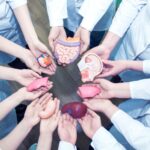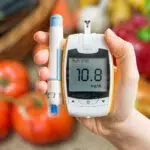Each year, National Donor Sabbath is observed two weekends before Thanksgiving Day, from November 14 to November 16 this year. The concept behind this day is to unite the different people of different religions, while learning how to save a life by donating vital organs to those in need. America is a land of great diversity — there are people from different races, backgrounds, and nations. There may be huge differences in their lifestyles and ideas, but one thing all these people have in common is belief in humanity or human kindness. National Donor Sabbath is a three-day observance of prayers, worship, and coming together of the leaders of different faiths to participate in services, programs, and initiatives. Time is taken to talk about the importance and public need of saving lives through organ and tissue donation. Organ donations transfers life to others via transplantation so that the recipient has the chance of a full, long life, free of diseased organs such as kidneys, hearts, and even eyes. These organs are donated by the families of loved ones who pass away in accidents and the like, with their organs intact, thus giving people with organ problems a second chance in life.
History of National Donor Sabbath
The National Donor Sabbath spreads awareness on the topic of organ donations. The concept of organ donations comes from a century old goal of healing patients and saving lives by transplanting organs from a donor to a recipient. Starting off as a minor side study pursuit, it soon began to expand as cases of people needing organ transplant started surfacing. In 1906, doctors were able to perform the first ever successful cornea transplant in a patient who was completely blind in one eye. This proved to be a major milestone in the history of organ transplant and paved the way for future transplant to happen. As medical advancements were made, doctors started performing effective transplants of lungs, liver, kidney, bone marrow and other vital organs from deceased donors.
By 1968, the first initiative to register donors and give them a donor card was made under the Uniform Anatomical Gift Act. This led to the first-ever observance of the National Organ and Tissue Donor Awareness Week, which is dedicated to spreading awareness of the need to donate the organs after death to save the lives of others. Soon, another act was passed by the Congress which made the sale and purchase of organs illegal in the U.S. This act was the National Organ Transplant Act. Organ donations are voluntary, free and usually based on decisions made to be a donor ahead of time, and communicated with family members or in the written last will of a person.
Finally, in 1997 as part of the national donation initiative, National Donor Sabbath was announced by the U.S. Department of Health and Human Services, and since 1997 it has been celebrated every year when leaders of different faiths stand together to spread awareness about the campaign.
National Donor Sabbath timeline
This is the first major step taken in the success story of organ transplant, which in future would pave the way for more successful and advanced transplant procedures.
The first organ procurement organization (OPO) is established in New England, Boston.
Congress declares the first National Organ and Tissue Donor Awareness Week, meant to spread awareness on the need of registering oneself as a donor.
A system of Organ Procurement and Transplantation Network (O.P.T.N.) is launched to make sure that the organs are being allocated fairly and to the people who need them.
The theme of “Give thanks. Give life," is the main focal point.
National Donor Sabbath FAQs
How old must I be to be an organ donor?
Any adult — age 18 or older — can register to be an organ, eye, and tissue donor. 15 to 17 year olds can register their intent to be organ, eye and tissue donors in the National Donate Life Registry. Until they are 18 years old, a parent, or legal guardian makes the final donation decision.
Where can I register as an organ donor?
Donate Life America manages the National Donate Life Registry. Registering ensures that your donor registration travels with you, no matter where you live or move across the country.
What can living donors donate?
Kidneys are the most common organs donated by living donors. Other organs that can be donated by a living donor include a lobe of a lung, partial liver, pancreas, or intestine.
How to Observe National Donor Sabbath
Register as an organ or tissue donor
Observance of this Sabbath can be felt in truth when one is himself willing to donate his organs to anyone who needs them at the time of his death. So register yourself as a donor, and encourage others to do the same.
Invite a representative to deliver a presentation
The idea is to make people aware of how many people can benefit from our organ donations. If you yourself are not much of a presenter, invite a representative of faith, or the Donor Sabbath Movement to come deliver a presentation. Gather your friends and colleagues and encourage them to attend the session.
Mention or highlight a person in your circle who has such a story
There might be someone in your area or your social circle who has a story to tell on organ donation - either as a donor, recipient, or member of a donor/recipient family. Invite them over to share their story to encourage others around you.
Five Facts About Donor Sabbath Everyone Should Know
Many people need organ transplants
There are around 121,000 people in the U.S. in need of life-saving donor transplants and that are on long waiting lists.
Many die because of organ shortages
According to data, 22 people die each day in the U.S. because of lack of organs available for transplant.
One man — 75 lives
Research has shown, a single healthy donor has the potential of saving and healing the lives of up to 75 people.
You don’t have to die to donate
Organs, such as kidneys and tissues, such as stem cells, are harvested from living donors and transplanted to the recipient in piggyback operations.
Celebrity organ donors
Organ donation has been done by people such as actress Natasha Richardson (heart, liver, and kidneys), and Space Shuttle specialist, Jake Garn, who donated a kidney to his daughter.
Why National Donor Sabbath is Important
It's worth knowing how your contribution can save lives
Yearly, 121,000 people are in need of life-saving organ transplants. 22 people die every day because of organ shortage. Knowing that our donation can help save the lives of such people is a reward in itself. “Every life matters”, the more people understand this, the greater number of lives we can save.
Giving a purpose to life
Celebrating National Donor Sabbath makes us realize the blessings we have and remind us to be thankful. The fact that it is celebrated two weekends before Thanksgiving Day makes it even more significant that we count our blessings and think about those who are not as blessed as we are. It makes us aware of those who possibly await our blessings in the form of organ donations. This gives us a purpose in life and after death.
Our participation can make a difference
Observing these days and by participating in the services offered in our community, we can help spread the awareness about the need to make such donations. Our efforts and participation can cause a chain reaction and countless lives can be saved.
National Donor Sabbath dates
| Year | Date | Day |
|---|---|---|
| 2024 | November 15 | Friday |
| 2025 | November 14 | Friday |

















